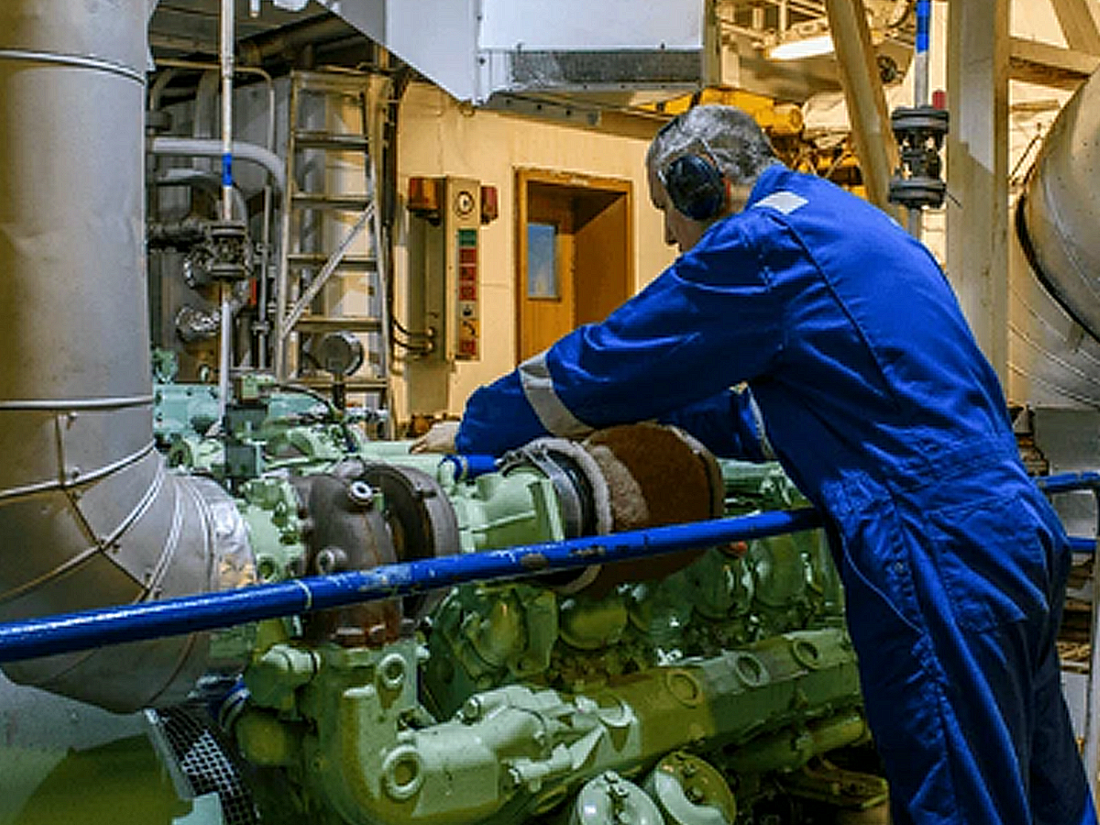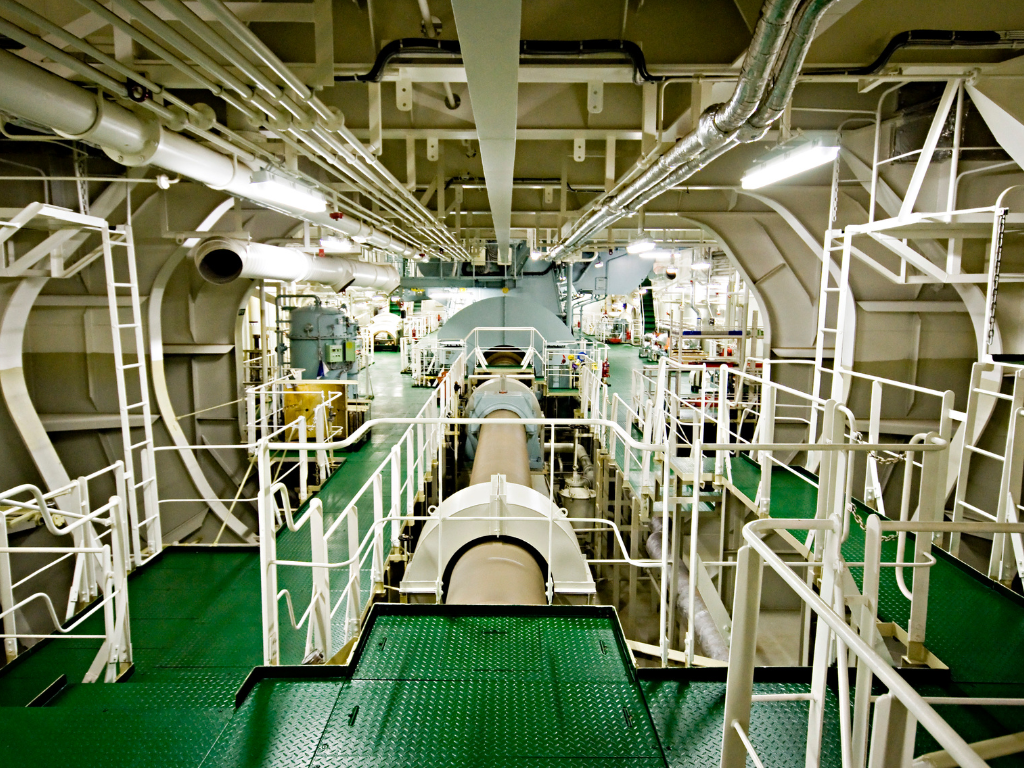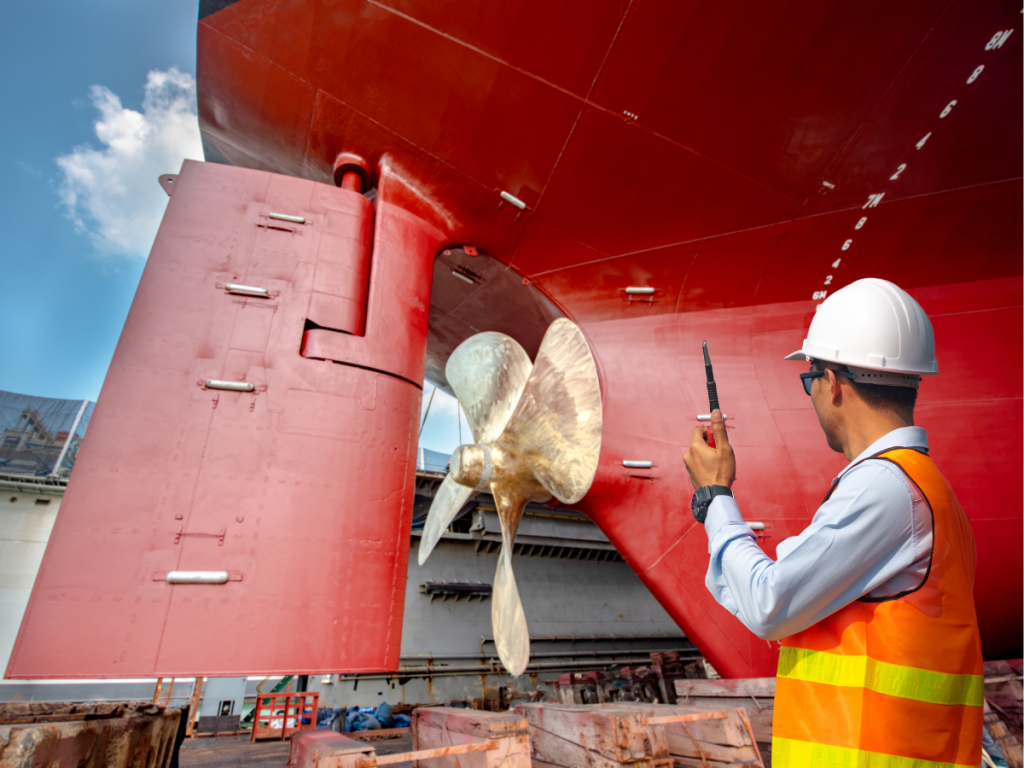When it comes to ship management, engine overhaul is crucial. Regular maintenance of ship engines ensures smooth operations, prevents unexpected breakdowns, and extends the lifespan of the vessel. In this article, we will explore the key aspects of engine overhaul, its benefits, and why it’s essential for effective ship management.
Table of Contents
Toggle
An engine overhaul involves a thorough inspection and repair of the ship’s engine. This process may include disassembling the engine, cleaning, replacing worn-out parts, and reassembling it to restore its optimal performance. A well-maintained engine reduces fuel consumption, increases efficiency, and ensures the safety of the vessel.
Ship engines operate under harsh conditions. Over time, the engine components wear out, leading to reduced performance and potential failures. An engine overhaul helps identify and fix issues before they escalate, preventing costly repairs and downtime. Moreover, regular overhauls ensure compliance with maritime regulations, which is critical for ship operators.
Neglecting maintenance can lead to unexpected engine failures, which can result in costly repairs, delays, and operational downtime.
Lack of maintenance often leads to more severe damage, requiring expensive repairs or even complete engine overhauls, which could be much costlier than routine upkeep.
Engines with improper maintenance tend to run less efficiently, consuming more fuel and affecting the vessel’s overall performance and operating costs.
Without regular maintenance, engine components can wear out more quickly, leading to a shorter engine lifespan and the need for premature replacements.
Engine failures or malfunctions due to poor maintenance can pose significant safety risks to the crew and the vessel, potentially leading to accidents or hazardous situations.
Failure to adhere to maintenance schedules can lead to non-compliance with maritime regulations, resulting in fines, legal issues, or operational restrictions.

Enhanced Performance: Regular overhauls keep the engine running at peak efficiency, reducing fuel consumption and operational costs.
Increased Lifespan: By replacing worn-out parts and addressing minor issues, the lifespan of the engine extends.
Safety: A well-maintained engine minimizes the risk of accidents caused by mechanical failures.
Compliance: Regular overhauls ensure that the engine meets the stringent safety and environmental standards set by maritime authorities.
Initial Inspection: The process begins with a thorough inspection to assess the engine’s condition and identify any issues.
Disassembly: Disassembling the engine provides access to all components for cleaning and repairs.
Cleaning: Cleaning all parts removes debris, carbon deposits, and other contaminants that can affect performance.
Replacement of Parts: Replacing worn-out or damaged parts restores the engine’s functionality.
Reassembly and Testing: After repairs, reassembling and testing the engine ensure it operates efficiently.
The EXII (Exhaust Emission II) regulations are part of the International Maritime Organization’s (IMO) framework for reducing emissions from ships, specifically targeting sulfur oxide (SOx) and nitrogen oxide (NOx) emissions. Regular maintenance of ship engines plays a crucial role in helping vessels meet these regulations.
Here’s how:
Optimal Combustion: Regular maintenance, including tuning and calibration of the engine, ensures that combustion is as efficient as possible. Efficient combustion reduces the production of harmful emissions, such as NOx and SOx.
Monitoring and Adjustment: Routine checks and adjustments of engine parameters, such as fuel injection timing and air-fuel ratio, help maintain emissions within regulatory limits.
Clean Fuel Systems: Regular maintenance of fuel systems, including filters and injectors, prevents clogging and ensures proper fuel atomization. This helps in achieving better combustion and reducing particulate emissions.
Fuel Quality: Maintaining the engine ensures that it operates efficiently with the type of fuel used, whether it’s compliant low-sulfur fuel or alternative fuels.
Wear and Tear: Regular inspections and replacements of worn-out parts prevent the degradation of engine performance, which could lead to increased emissions.
Preventive Measures: Addressing issues like worn piston rings or faulty turbochargers before they worsen ensures the engine remains in good condition and operates within emission limits.
Emission Control Systems: Maintenance of emission control technologies such as selective catalytic reduction (SCR) systems and exhaust gas recirculation (EGR) systems ensures they function properly and effectively reduce NOx emissions.
Particulate Filters: Regular maintenance of particulate filters and scrubbers ensures they are clean and functioning correctly, thus controlling particulate matter and sulfur emissions.
Preventive Maintenance: Regular upkeep prevents sudden engine failures that might lead to malfunctioning of emission control systems or emergency repairs that could result in temporary non-compliance with emission standards.
Operational Efficiency: Keeping the engine in top condition ensures that it runs smoothly and efficiently, which contributes to better emissions performance.
Adaptation to Fuel Changes: Regular maintenance ensures that the engine can adapt to different types of compliant fuels or fuel blends, such as low-sulfur fuels or LNG, which are often used to meet stricter emission regulations.
Record Keeping: Regular maintenance helps maintain accurate records of engine performance and emissions, which are crucial for compliance verification during inspections or audits.

In conclusion, engine overhaul is a vital aspect of ship management. It not only enhances performance and safety but also ensures compliance with maritime regulations. Regular overhauls are an investment that pays off by extending the engine’s lifespan and reducing operational costs. Ship operators must prioritize engine overhauls to maintain their vessels’ efficiency and safety at sea.
ARCSHIP understands the complex demands of ship management, especially when it comes to maintaining the heart of your vessel—the engine. With years of expertise in the maritime industry, our team aims to provide comprehensive ship management services that ensure your vessel operates at peak performance. Visit ArcShip.ae and learn more about our commitment to delivering reliable and efficient solutions, so you can navigate the seas with confidence.

Head Office : SHED #182B AL JADDAF DRYDOCK WORLD, P.O BOX -65565, DUBAI, UAE
Tel: +971 555787949
Email: info@arcship.ae
© ARCSHIP MANAGEMENT. All rights reserved.